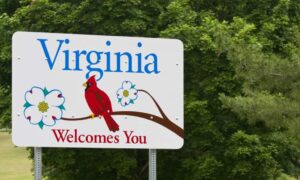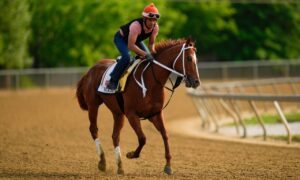HeadWaters Casino Makes Progress After A Season Of Change


Despite the temporary casino plans leaving the city’s ballpark over the summer, the Norfork developers remain committed to their home run plan. The Pamunkey Tribe’s HeadWaters Resort & Casino is now progressing once again.
The project includes constructing a temporary and a permanent site in close proximity to Harbor Park Stadium, allowing fans to conveniently place bets near the AAA Norfolk Tides’ home.
After completion, the riverfront will be teeming with thousands of employees brought in by the casino. The initial phase involves the involvement of architects and construction crews. Subsequently, the casino and resort will hire their own staff, and additional employees will be recruited for the various food, drink, and shopping options available at the HeadWaters complex.
Jay Smith, the spokesperson for HeadWaters, informed Play Virginia that job fairs and workforce training will be organized as the opening day approaches. It is advised to be vigilant for any help wanted signs.
The Pamunkey Tribe projects that the casino will generate tens of millions of dollars in yearly tax revenue and have an economic impact of nearly a billion dollars on the local area.
Temporary casino had to move
The Tribe decided in July of this year to abandon its original idea of locating the temporary gaming facility within Harbor Park Stadium. The initial plan was anticipated to create a mutually beneficial outcome.
- Revenue from bets at the temporary casino would start flowing into the Pamunkey Tribe’s coffers.
- Additionally, the interior renovations would revitalize a neglected section of the stadium.
However, the casino authorization in Norfolk has strict provisions. The approved address for the casino did not align with the Harbor Park address, prompting the Tribe to relocate the temporary casino to the east of the ballpark.
The future Virginia casino will be located on a specific section of the property which has been allocated for the permanent Headwaters Resort & Casino, according to the revised plan.
According to Smith, the project spokesperson, the Tribe will be able to expand its operations as a result of this move. Additionally, the city of Norfolk and local schools will experience the advantages of higher tax revenue.
On August 19, the Tribe provided the city with a site plan for the temporary casino; however, construction has not commenced yet, according to developers. Additionally, Smith mentioned that once the permanent casino is completed, the temporary one will be demolished.
HeadWaters Casino plans earned support
In November 2020, casino gambling in Norfolk was approved by a significant margin of 2-to-1 by the voters. Subsequently, on May 4, 2021, the Pamunkey Tribe officially named the casino “HeadWaters Resort & Casino.”
At present, the Tribe is collaborating with the city to develop a long-term site plan and facilitate the transfer of land ownership, enabling them to commence construction.
Smith announces that the Tribe is enthusiastic and fully prepared to commence construction.
The HeadWaters Resort & Casino is a project worth $500 million, with no set groundbreaking date for the permanent casino yet. The construction of the permanent venue is estimated to take approximately 18-24 months.
The community wins, too
A representative from the Pamunkey Indian Tribe Gaming Authority has stated that their charitable efforts will be primarily directed towards supporting food initiatives and flood relief.
During the city council meeting, Norfolk resident Keving Krigsvold shared the remarkable contributions made to 10 local food pantries. Over the course of two years, these generous donations amounted to a staggering total of 327,181 meals.
The Tribe is continuously working towards tackling food insecurity and guaranteeing that no individual in the city of Norfolk experiences hunger ever again.
Additionally, the construction plans of the Pamunkey Tribe prioritize environmental conservation. In an unprecedented move, the casino operators will actively support Norfolk’s flood resilience project, which aims to protect the Elizabeth River. This makes them the pioneering private developer to contribute to this significant initiative.






